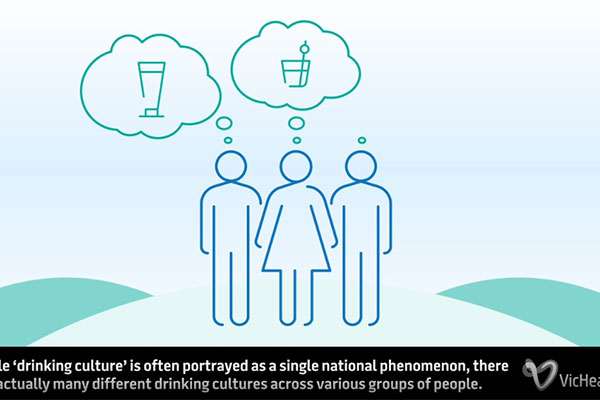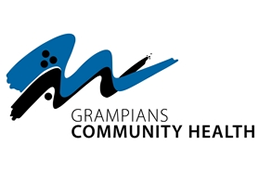
.jpg)
Youth C.A.N. (Changing Alcohol Norms)
The Youth C.A.N. project commenced in 2016 following the awarding of funding from VicHealth. Horsham Rural City Council coordinated the project which captured insights to inform an understanding of alcohol consumption and misuse in the region and identify opportunities for cultural change to reduce alcohol use. CeRDI conducted research that informed strategies and interventions which could be implemented to shift cultural norms in the consumption of alcohol by young people.
Background
As part of VicHealth's Alcohol Culture Change Grants for Local Councils, CeRDI collaborated with Horsham Rural City Council to assess alcohol use by young people in Horsham and identify health interventions that promoted cultural change and safer, reduced alcohol consumption for young people in the region.
The research captured insights that informed the understanding of alcohol consumption and misuse in young people and identified opportunities for cultural change. The alcohol culture was examined through:
- The influence of rurality on the behaviours, attitudes, and social norms of young people
- The settings in which young people consume alcohol
- The influence of peers, parents, and the community
- The impact of gender on alcohol culture
- The strategies most likely to support change in alcohol culture for young people within the context of rurality.
The research implemented a multi-level strategy targeting young people, parents, and the wider community. The strategy included building knowledge, awareness and capacity, an integrated education program for parents and young people, and a social marketing campaign to counter perceived norms and promote alternative choices for young people
Outcomes
A research report for the project was completed in 2019 which outlines how the project impacted culture change around alcohol for young people in the region. The influence of rurality on the attitudes and beliefs relating to alcohol consumption emerged as a consistent theme across the research. The following findings were identified:
- Alcohol was viewed as a key mechanism to have fun in an environment with limited options for entertainment. Consuming alcohol until you were drunk was a dominant and accepted norm for young people. The lack of alternative activities for rural young people was found to play a role in sustaining this worldview as alcohol consumption was conceptualised as a logical and readily accessible alternative to alleviate boredom and to connect with peers.
- The most common settings for young people to consume alcohol were parties and smaller social gatherings within private homes and in rural locations. Pre-loading prior to attending these settings was a behavioural norm.
- Consuming alcohol to risky levels was found to be more likely to occur within a party setting, with alcohol used as a mechanism to socialise, fit in, and belong to an identified social group. Those choosing not to consume alcohol risked exclusion and identified the need to develop strategies to either hide that they were not consuming alcohol or to gain acceptance as a non-consumer of alcohol within a setting in which drinking (often at risky levels) was the dominant norm.
- Ease of access to alcohol had a considerable influence on the levels of consumption of alcohol with the main source of supply identified as siblings, older peers, and parents.
- An exploration of local role models relevant to young people failed to identify role models that had relevance and influence. Parents and peers were identified as being those most likely to shape and influence behaviour.
- While there were no notable differences in the quantity of alcohol consumed by young males and females, there were distinct gender differences in patterns of drinking and in the level and type of risk-taking behaviour. There were also differences in the extent to which alcohol consumption was accepted and conceptualised by the broader rural community based on gender.
Insights were also identified through a desktop review of best practice strategies and interventions. Strategies for the prevention and intervention of alcohol misuse amongst young people were found to involve collaboration with a wide range of committed stakeholders from within affected communities. Social marketing was another method successful in addressing alcohol misuse and promoting positive behaviour change.
The research findings have informed the development of a model to promote a shift in alcohol culture among rural young people.
Innovation
The innovative elements of this research were:
- Placing the planning for change within the control of the young people.
- Tailoring a multi-level solution specifically to a rural location.
- Placing technology at the centre of the education and support process.
- Providing the opportunity for combined educational processes for young people and parents to ensure a shared platform for change.
- Creating an activity based social marketing solution that acknowledged the link between the lack of socialisation activities across rural communities and high-risk alcohol consumption in party settings.
- Running a parallel action research process.
Additional outcomes
The Youth C.A.N. project was identified as an exemplar and was integrated within VicHealth’s Alcohol Cultures Guide ![]() . The guide supports practitioners to use the Alcohol Cultures Framework and includes exemplary case studies from alcohol culture change initiatives. Each case study in the framework offers insights about the success of the projects and approaches that have been used across Victoria, leading to practice change. The Youth C.A.N. project represents the strategies for cultural change leading to safer, reduced alcohol consumption for young people (aged 15–20 years) in rural Victoria and has relevance for other rural and regional areas.
. The guide supports practitioners to use the Alcohol Cultures Framework and includes exemplary case studies from alcohol culture change initiatives. Each case study in the framework offers insights about the success of the projects and approaches that have been used across Victoria, leading to practice change. The Youth C.A.N. project represents the strategies for cultural change leading to safer, reduced alcohol consumption for young people (aged 15–20 years) in rural Victoria and has relevance for other rural and regional areas.
The guide was developed by VicHealth in consultation with key stakeholders involved in delivering and evaluating alcohol culture change projects as part of the VicHealth Alcohol Culture Change Initiative 2016–2019. The guide can be used in conjunction with other key resources for supporting health promotion practitioners, local government policy makers and community organisations to act on risky drinking cultures.
-
RESEARCH OUTPUT
Murphy, A., Taylor, M. & Corbett, J. (2017). Alcohol Culture Change Initiative for Local Councils Stage One Final Report: Shifting the norm - Changing rural alcohol culture through youth engagement. Mount Helen, Australia: Centre for eResearch and Digital Innovation, Federation University.
-
RESOURCES
The Alcohol Cultures Guide: Taking Action on Risky Drinking Cultures:
https://www.vichealth.vic.gov.au/-/media/ResourceCentre/PublicationsandResources/alcohol-misuse/Alcohol-Cultures-Guide.pdf?la=en&hash=D8EB62BE05F838F6098B6FF07227542704CED75B
-
NEWS
Youth C.A.N. project: A model for success - 22 June 2020
VicHealth recently released a set of resources to assist practitioners and communities to understand alcohol cultures and reducing alcohol harm.... Continue reading...
Youth C.A.N project: successful conclusion - 1 October 2019
The Youth Changing Alcohol Norms (Youth C.A.N) project, funded by VicHealth and co-ordinated by Horsham Rural City Council (HRCC) and CeRDI under the leadership of Dr Angela Murphy, recently concluded... Continue reading...
Youth Changing Alcohol Norms project: Video launch - 21 March 2019
Youth Changing Alcohol Norms project recently launched a video showcasing one of the key programs involving young people in Horsham.... Continue reading...
Funding awarded through VicHealth’s Alcohol Culture Change Grants Initiative for Local Councils - 11 July 2017
Horsham Rural City Council, in partnership with CeRDI, has been successful in securing funding through VicHealth’s Alcohol Culture Change Grants Initiative for Local Councils. Read more »
CeRDI awarded funding through VicHealth’s Alcohol Culture Change Grants Initiative for Local Councils - 5 June 2017
Horsham Rural City Council, in partnership with CeRDI, has been successful in securing funding through VicHealth’s Alcohol Culture Change Grants Initiative for Local Councils. Read more »
Update: Pilot project identifying rural alcohol culture and change in the Wimmera - 29 March 2017
CeRDI was recently commissioned to undertake research and to promote cultural change towards reducing alcohol use for youth in Horsham. Read more »
Pilot project identifying rural alcohol culture and change in the Wimmera - 6 December 2016
CeRDI has been commissioned to conduct research and to promote cultural change towards alcohol use for youth in Horsham. Read more »
-
PARTNERS












